
Peshawar: Gateway to Pakistan's Rich Heritage
Peshawar, the capital of Khyber Pakhtunkhwa province in Pakistan, is a city that echoes with the tales of ancient civilizations and the footsteps of invaders and traders. Nestled at the eastern end of the Khyber Pass, Peshawar has been a melting pot of cultures, from Persian to Mughal, and British influences, making it a fascinating destination for history enthusiasts and curious travelers alike. Walking through the bustling streets of the old city, you will encounter architectural marvels such as the historic Qissa Khwani Bazaar, known as the 'Street of Storytellers.' Here, you can immerse yourself in the vibrant atmosphere, savor local delicacies, and shop for traditional crafts. The Mahabat Khan Mosque, with its exquisite Mughal-era architecture, stands as a testament to the city's rich Islamic heritage. For a deeper dive into history, visit the Peshawar Museum, which houses an impressive collection of Gandharan art, Buddhist relics, and artifacts from the region's diverse past. The Bala Hisar Fort offers panoramic views of the city and a glimpse into Peshawar's strategic significance over the centuries. Don't miss the opportunity to explore the nearby Khyber Pass, a historic trade route that has witnessed the passage of countless armies and traders. Peshawar's cuisine is a delightful blend of flavors, with influences from Central Asia and the Indian subcontinent. Try the mouthwatering chapli kebabs, flavorful pulao, and the famous Peshawari naan. The city's warm and hospitable people add to its charm, making every visitor feel welcome.
Local tips in Peshawar
- Dress modestly to respect local customs and traditions.
- Visit the Qissa Khwani Bazaar early in the day to avoid crowds and get the best shopping experience.
- Hire a local guide to enrich your historical tours with fascinating stories and insights.
- Carry cash, as many local markets and small shops may not accept credit cards.
- Try local street food but ensure it's from a clean and reputable vendor.
Neighbourhoods in Peshawar
Peshawar: Gateway to Pakistan's Rich Heritage
Peshawar, the capital of Khyber Pakhtunkhwa province in Pakistan, is a city that echoes with the tales of ancient civilizations and the footsteps of invaders and traders. Nestled at the eastern end of the Khyber Pass, Peshawar has been a melting pot of cultures, from Persian to Mughal, and British influences, making it a fascinating destination for history enthusiasts and curious travelers alike. Walking through the bustling streets of the old city, you will encounter architectural marvels such as the historic Qissa Khwani Bazaar, known as the 'Street of Storytellers.' Here, you can immerse yourself in the vibrant atmosphere, savor local delicacies, and shop for traditional crafts. The Mahabat Khan Mosque, with its exquisite Mughal-era architecture, stands as a testament to the city's rich Islamic heritage. For a deeper dive into history, visit the Peshawar Museum, which houses an impressive collection of Gandharan art, Buddhist relics, and artifacts from the region's diverse past. The Bala Hisar Fort offers panoramic views of the city and a glimpse into Peshawar's strategic significance over the centuries. Don't miss the opportunity to explore the nearby Khyber Pass, a historic trade route that has witnessed the passage of countless armies and traders. Peshawar's cuisine is a delightful blend of flavors, with influences from Central Asia and the Indian subcontinent. Try the mouthwatering chapli kebabs, flavorful pulao, and the famous Peshawari naan. The city's warm and hospitable people add to its charm, making every visitor feel welcome.
When is the best time to go to Peshawar?
Iconic landmarks you can’t miss
Peshawar Zoo
Explore Peshawar Zoo: An enchanting wildlife sanctuary in Peshawar, blending fun and education for all ages.
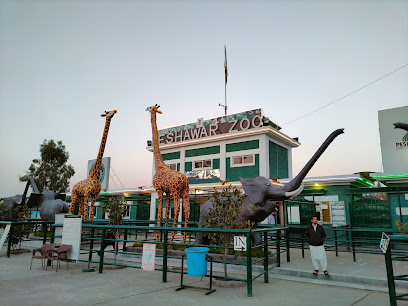
Sadar Bazar Peshawar
Discover the vibrant Sadar Bazar in Peshawar, a cultural marketplace filled with local crafts, delicious street food, and the essence of Pakistani heritage.
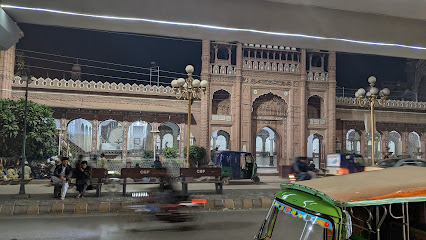
Garrison Park Peshawar
Discover Garrison Park in Peshawar: a serene escape with lush greenery, recreational activities, and a vibrant community atmosphere.
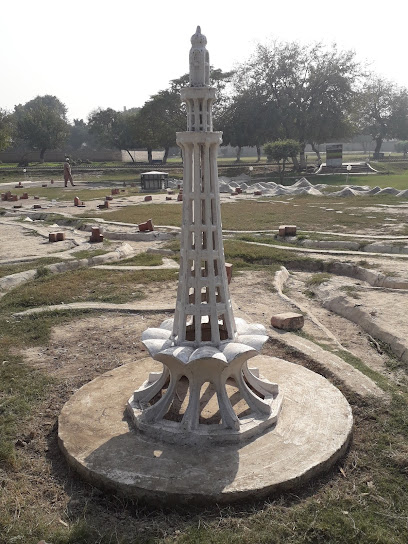
Bagh e Naran
Discover the beauty and tranquility of Bagh e Naran, a serene park in Peshawar perfect for relaxation and cultural immersion.
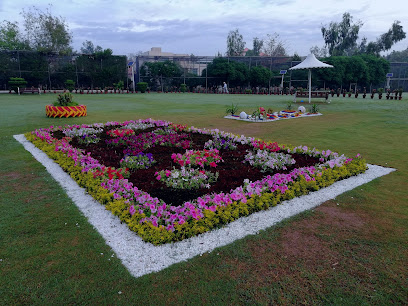
Jinnah Park
Discover the lush beauty of Jinnah Park in Peshawar, a tranquil oasis perfect for relaxation, recreation, and cultural experiences.
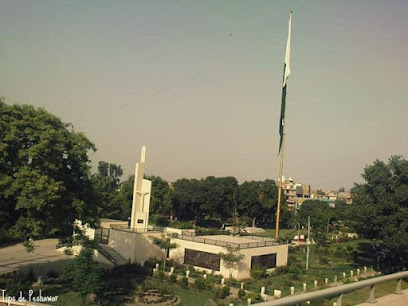
Sir Cunningham Clock Tower
Discover the historic Sir Cunningham Clock Tower in Peshawar, a stunning architectural marvel that reflects the city's rich cultural heritage.
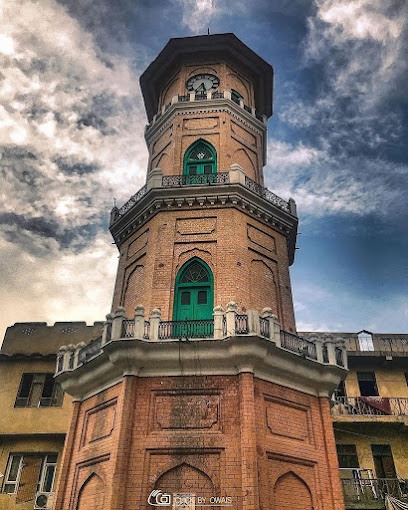
Mahabat Khan Mosque
Explore the Mahabat Khan Mosque, a stunning Mughal architectural masterpiece and a serene oasis in the bustling heart of Peshawar.
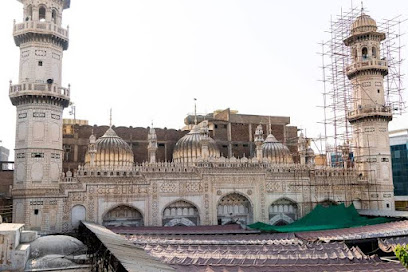
Gunj Gate
Explore Gunj Gate in Peshawar: A historical landmark that unveils the rich cultural heritage and storied past of one of Pakistan's oldest cities.
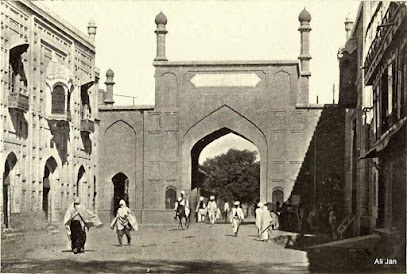
Karnal Sher Khan Shaheed Stadium
Experience the thrill of live sports at Karnal Sher Khan Shaheed Stadium in Peshawar, where passion and tradition unite in an unforgettable atmosphere.
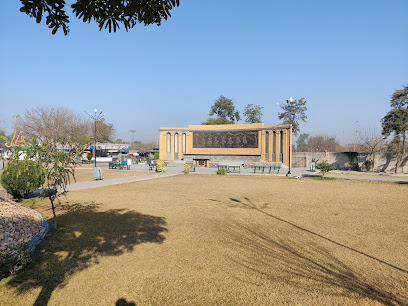
Fort Continental Hotel Peshawar
Discover the heart of Peshawar at Fort Continental Hotel, where modern comfort meets traditional hospitality in a prime location.
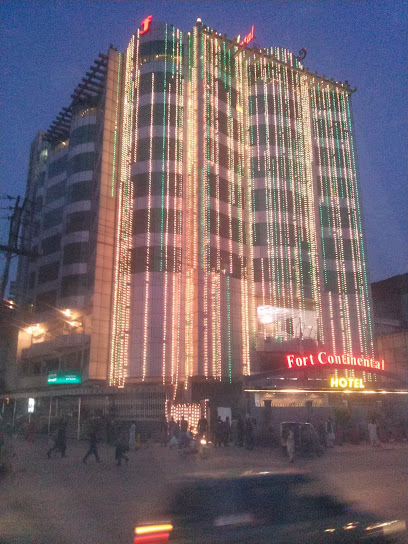
Shalman Park
Explore Shalman Park, a lush green retreat in Peshawar, perfect for relaxation, family outings, and enjoying the beauty of nature.
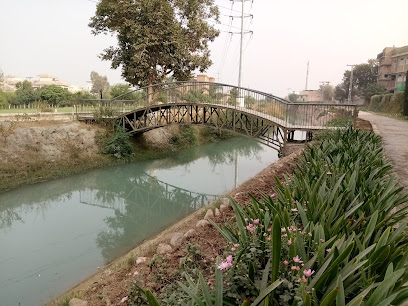
Peshawar Museum
Explore the rich cultural heritage of Khyber Pakhtunkhwa at Peshawar Museum, home to stunning Gandharan art and historical artifacts.
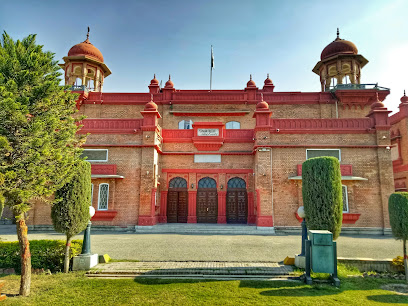
Wazir Bagh
Explore the tranquil beauty and rich history of Wazir Bagh, a scenic park in Peshawar perfect for relaxation and cultural immersion.
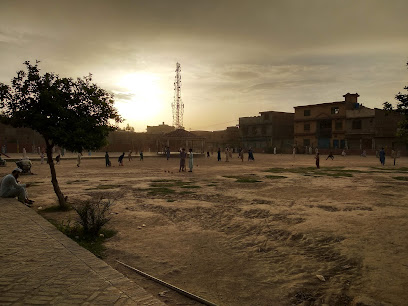
Dabgari Gardens
Experience the tranquil beauty of Dabgari Gardens in Peshawar, a perfect blend of nature and history that captivates every visitor.
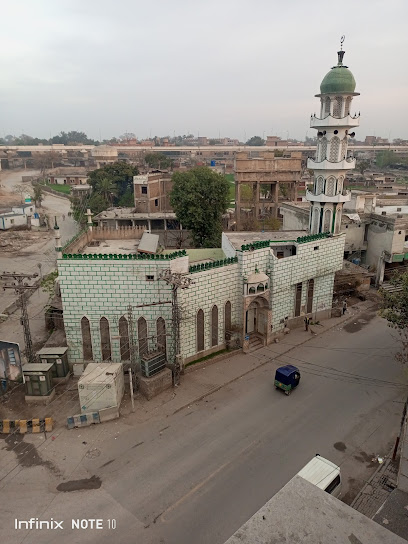
Khalid Bin Waleed Park
Experience the beauty and tranquility of Khalid Bin Waleed Park, a lush green haven in the heart of Peshawar, perfect for relaxation and family outings.
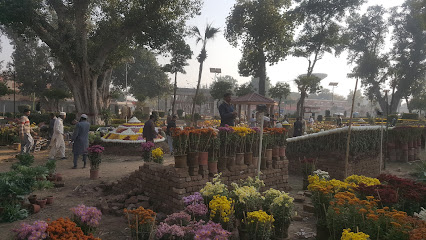
Unmissable attractions to see
Garrison Park Peshawar
Explore the lush landscapes and vibrant atmosphere of Garrison Park in Peshawar, a perfect blend of relaxation and recreation for all ages.
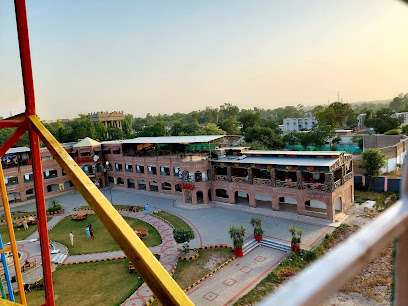
Shahi Bagh
Discover the tranquil beauty and rich cultural heritage of Shahi Bagh, a must-visit park in Peshawar, Pakistan, for every traveler.
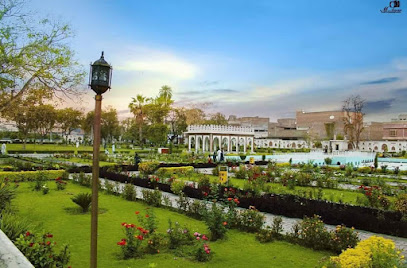
Jinnah Park
Discover Jinnah Park: A green haven in Peshawar, perfect for relaxation, family outings, and immersing in nature's beauty.
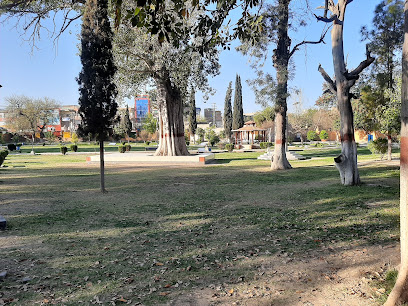
Sir Cunningham Clock Tower
Discover the Sir Cunningham Clock Tower in Peshawar, a historical landmark blending rich heritage with the vibrant atmosphere of Sarafa Bazar.
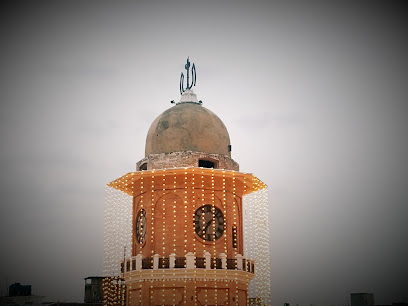
Mahabat Khan Mosque
Discover the architectural splendor and spiritual tranquility of Mahabat Khan Mosque, a historic gem in Peshawar.
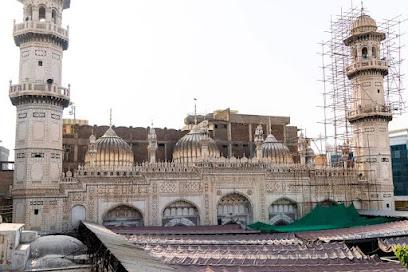
Tatara Park
Discover the beauty of Tatara Park in Peshawar, a lush urban oasis perfect for relaxation, family outings, and scenic strolls amidst nature.
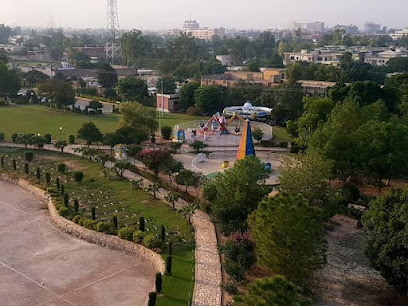
Shalman Park
Discover tranquility at Shalman Park, a lush green haven in Peshawar, perfect for relaxation, family outings, and enjoying nature's beauty.
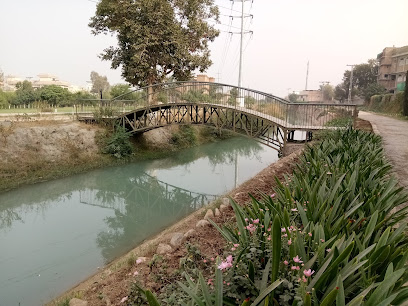
Peshawar Museum
Explore the Peshawar Museum, a cultural gem showcasing the history and heritage of Khyber Pakhtunkhwa through stunning artifacts and exhibits.
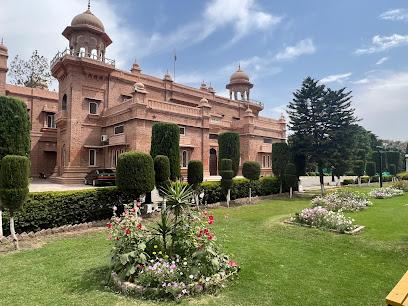
Chacha Younis Park
Discover tranquility at Chacha Younis Park in Peshawar, where lush landscapes meet recreational fun for the whole family.
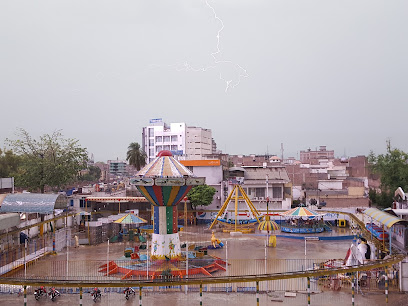
Wazir Bagh
Discover the beauty and history of Wazir Bagh, an enchanting park in Peshawar, perfect for nature lovers and history enthusiasts.
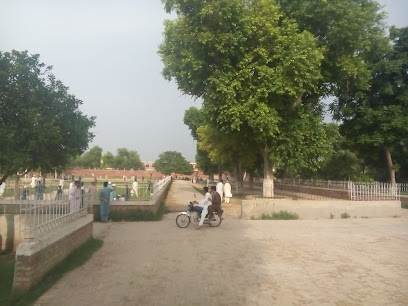
Islamia College University Peshawar
Explore the architectural beauty and historical significance of Islamia College University, a top educational landmark in Peshawar, Pakistan.
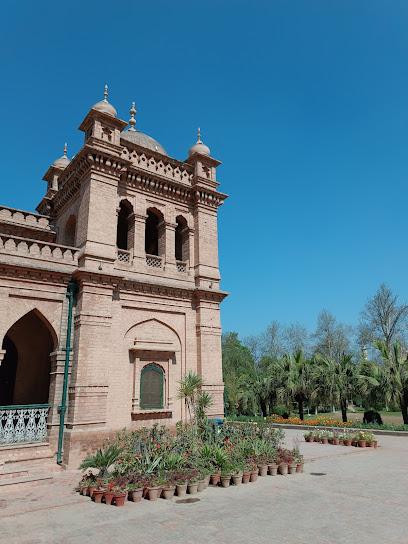
Khalid Bin Waleed Park
Explore the lush landscapes and vibrant culture at Khalid Bin Waleed Park, Peshawar's serene urban retreat, perfect for relaxation and recreation.
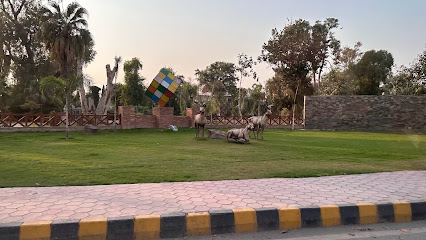
Jamrud Fort
Explore the historical grandeur of Jamrud Fort, a breathtaking fortress in Khyber Pakhtunkhwa, Pakistan, offering stunning views and rich cultural heritage.
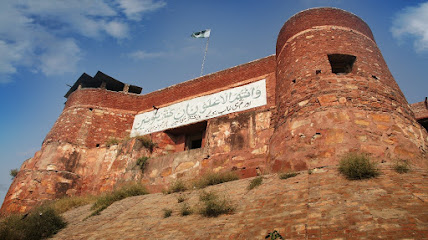
Peshwar zoo ticket
Explore Peshawar Zoo: A Family-Friendly Attraction with Diverse Wildlife and Educational Experiences in the Heart of Khyber Pakhtunkhwa.
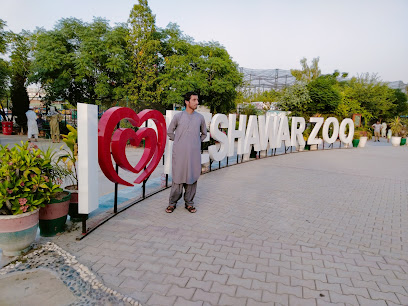
Sethi House Museum
Explore the Sethi House Museum, a gem of Pashto architecture in Peshawar, showcasing rich cultural heritage and stunning historical artifacts.
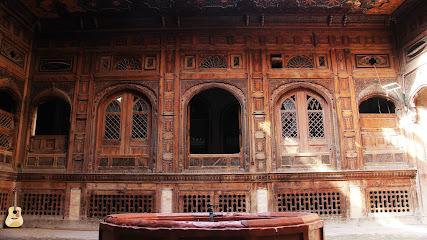
Essential places to dine
Nisar Charsi Tikka
Discover the authentic taste of Peshawar at Nisar Charsi Tikka - where every bite tells a story of tradition and flavor.
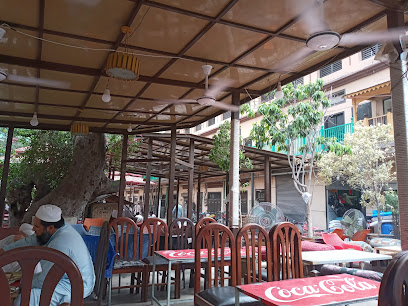
Cheezious HBK Peshawar
Discover cheesy delights at Cheezious HBK Peshawar – where comfort food meets local flavors in a vibrant atmosphere.
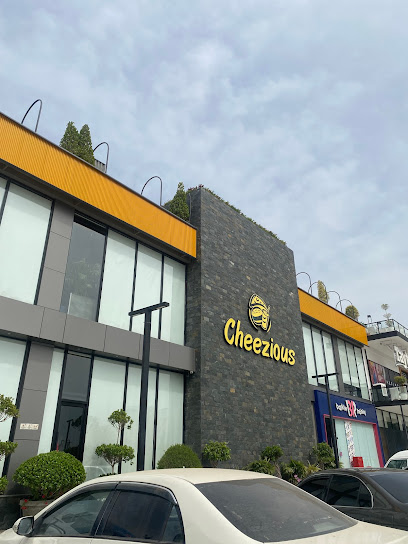
Chief Grill
Discover authentic flavors at Chief Grill in Peshawar—where traditional meets modern in a family-friendly setting.
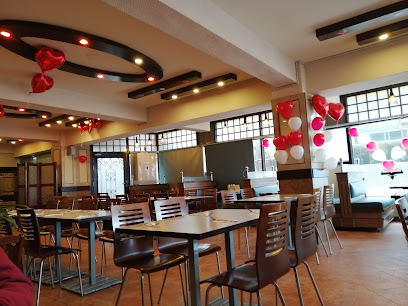
KFC - University Road Peshawar
Experience the iconic taste of KFC on University Road in Peshawar, where crispy fried chicken meets local flavor.
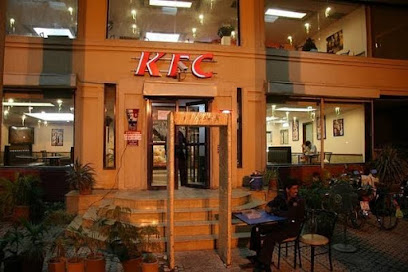
Shiraz Ronaq
Experience the vibrant flavors of Pakistani cuisine at Shiraz Ronaq, Peshawar's premier buffet restaurant offering an unforgettable dining experience.
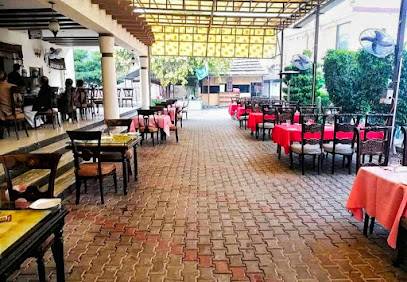
Shinwari Restaurant
Discover the rich flavors of Afghani cuisine at Shinwari Restaurant in Peshawar – where tradition meets taste.
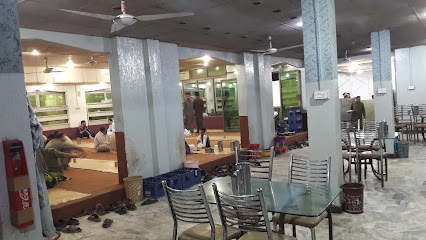
Hujra Restaurant
Discover the rich flavors of Pakistani cuisine at Hujra Restaurant in Peshawar—where tradition meets taste in every bite.
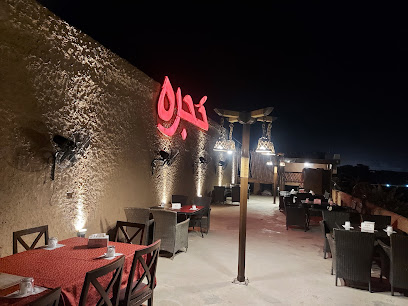
Traskoon
Experience the authentic taste of Pakistani barbecue at Traskoon in Peshawar – a culinary gem that promises flavor-packed dishes in a welcoming atmosphere.
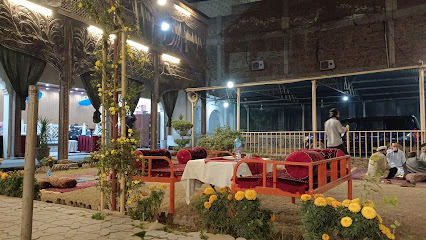
Silver Dragon
Experience authentic Chinese cuisine at Silver Dragon in Peshawar—where flavor meets tradition in a welcoming atmosphere.
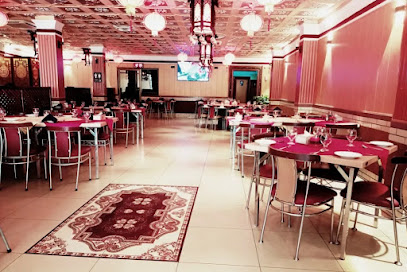
Habibi Restaurant Phase 3 Chowk
Experience the rich flavors of authentic Pakistani cuisine at Habibi Restaurant in Peshawar's vibrant Hayatabad area.
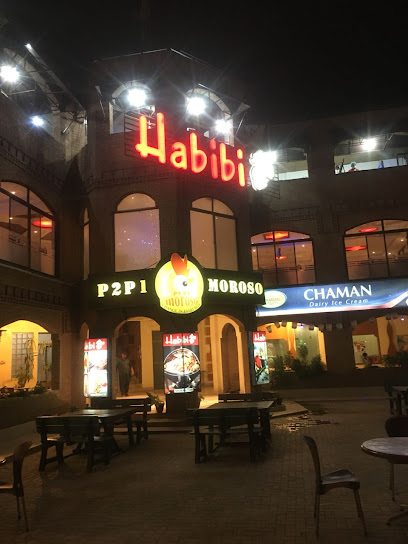
Bread Chef Cafè And Bakers
Experience culinary excellence at Bread Chef Café in Peshawar – where fresh baked goods meet gourmet dining in an inviting atmosphere.
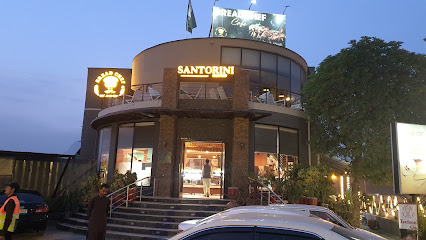
Habibi Restaurant Peshawar
Experience authentic Pakistani flavors at Habibi Restaurant in Peshawar – where tradition meets taste.
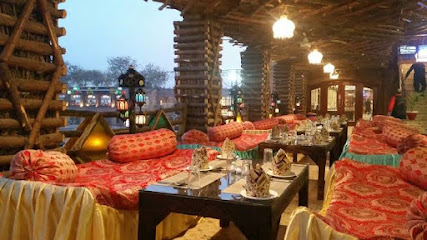
Zaiqa Restaurant
Experience the rich flavors of Pakistan at Zaiqa Restaurant in Peshawar - where every dish tells a story.
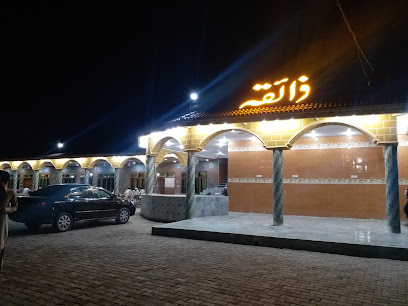
Cafe Crunch
Discover Café Crunch in Peshawar - where local flavors meet modern dining in an inviting atmosphere perfect for any occasion.
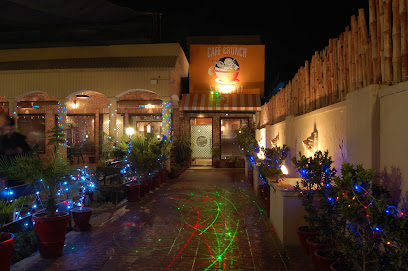
Usmania Restaurant
Experience authentic Pakistani cuisine at Usmania Restaurant in Peshawar – a culinary gem serving traditional dishes in a warm atmosphere.
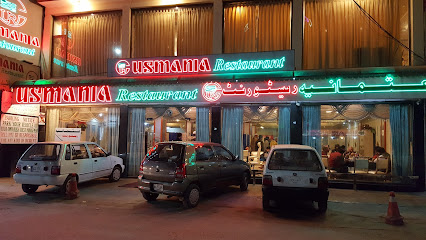
Markets, malls and hidden boutiques
Imtiaz Mega Peshawar
Discover the best of Peshawar shopping at Imtiaz Mega, where local flavor meets modern convenience in one vibrant grocery store.
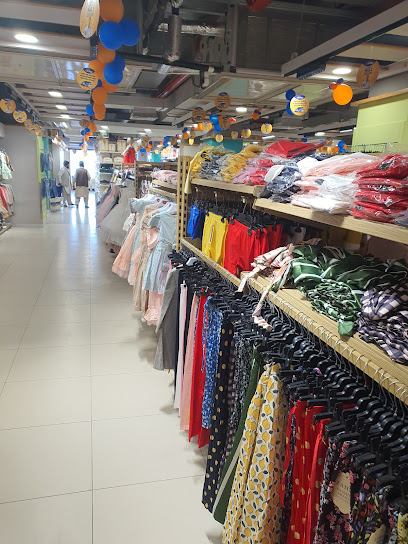
Inspire Supermarket
Explore the vibrant flavors of Pakistan at Inspire Supermarket in Peshawar, where local produce and international treats await every visitor.
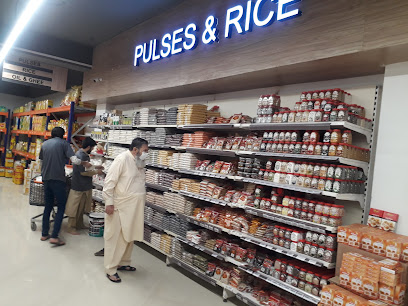
Miniso
Discover trendy fashion and unique home goods at Miniso, your go-to store for affordable shopping in Peshawar.
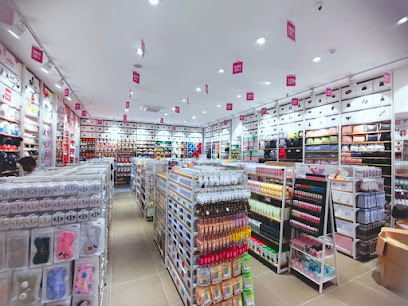
Al-Fatah Shopping Mall Peshawar
Discover a vibrant shopping experience at Al-Fatah Shopping Mall in Peshawar, where fashion, food, and entertainment come together for an unforgettable day.
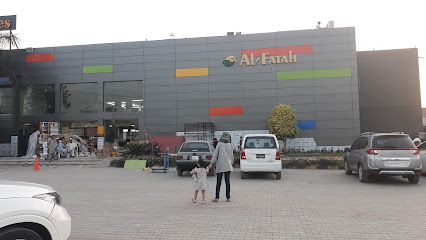
Wadud Home Store
Discover the finest clothing and accessories at Wadud Home Store, Peshawar's premier shopping destination for all your fashion needs.
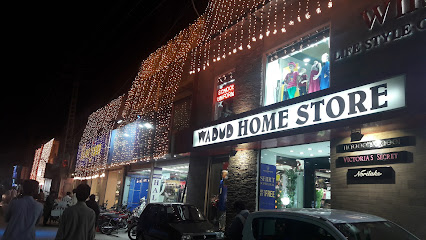
Outfitters Peshawar
Discover stylish apparel at Outfitters Peshawar, a must-visit clothing store for fashion-forward tourists seeking quality and trendy designs.

Sha Posh
Explore Sha Posh, Peshawar's boutique haven for unique clothing that blends tradition with modern fashion.
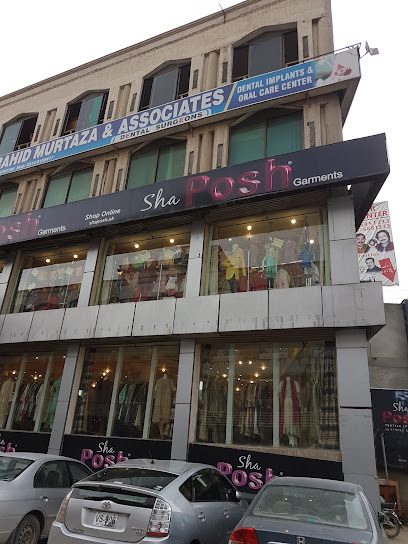
Eclisse Perfumes
Explore unique clothing and exquisite fragrances at Eclisse Perfumes, a must-visit shopping destination in Peshawar, Pakistan.
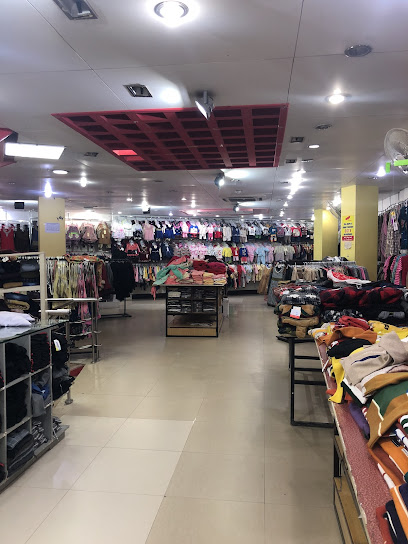
Roshan Brands Boutique
Explore Roshan Brands Boutique in Peshawar for unique clothing and pet supplies, blending local culture with modern fashion.
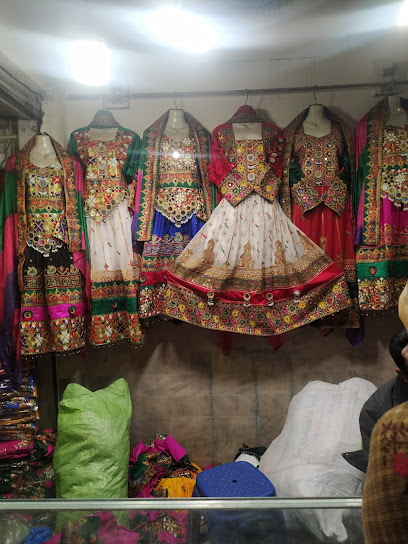
Expostore Peshawar
Discover unique fashion at Expostore Peshawar - your go-to clothing store for trendy attire and authentic local style.
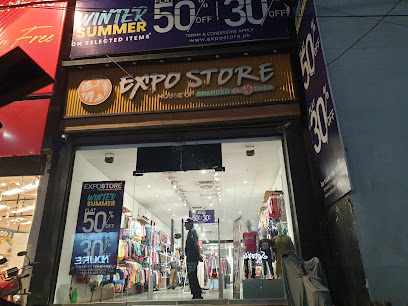
Ethnic
Explore Ethnic in Peshawar for unique women's clothing that blends cultural heritage with modern fashion trends.
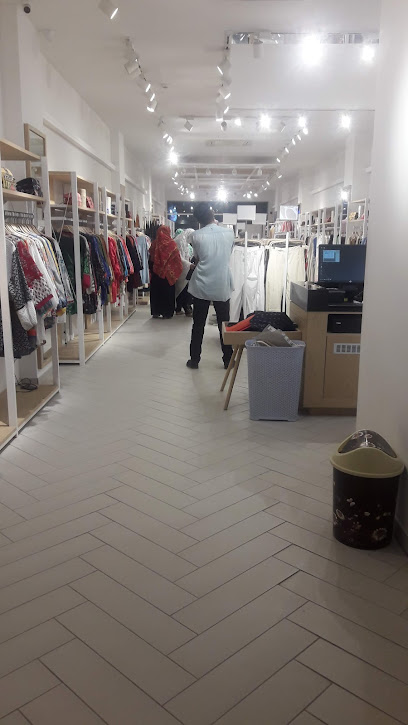
AVON Gift Shop
Explore the charm of AVON Gift Shop in Peshawar - your destination for unique, culturally rich gifts and souvenirs.
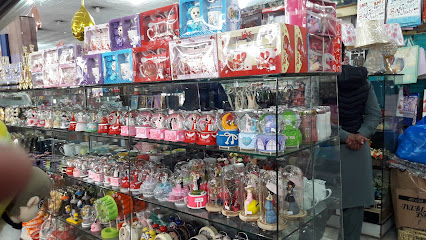
J's Emporium
Discover the latest fashion trends at J's Emporium in University Town, Peshawar - your go-to spot for stylish clothing and shoes.
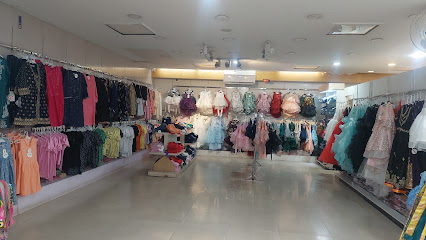
Ayesha Arooj Botique
Explore Ayesha Arooj Boutique in Peshawar for exquisite fashion, bridal wear, and accessories that celebrate local craftsmanship and style.
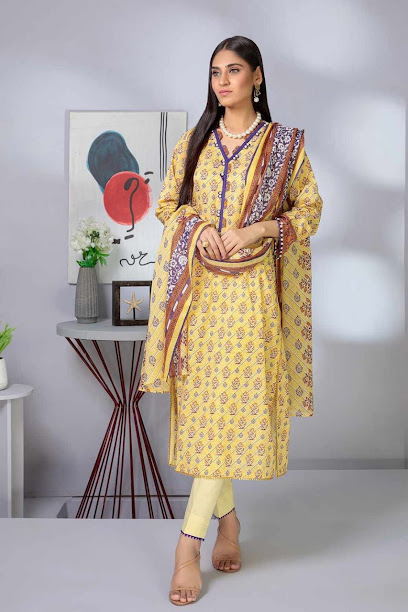
Unique Arts & Stationers
Explore Unique Arts & Stationers in Peshawar for a delightful array of art supplies, handmade gifts, and stationery items that inspire creativity.
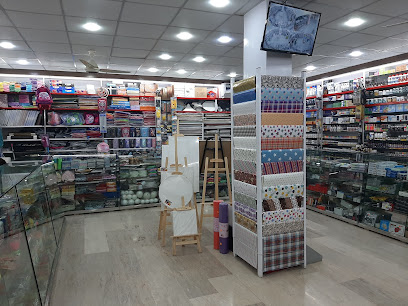
Essential bars & hidden hideouts
Freshing Soda
Discover the vibrant nightlife at Freshing Soda in Peshawar - a perfect blend of refreshing drinks and lively ambiance.
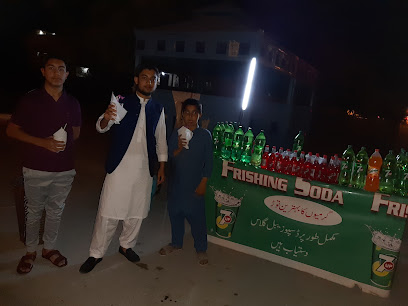
Sheesha Cafe
Discover Sheesha Cafe in Peshawar, a vibrant bar offering aromatic sheesha, traditional snacks, and a welcoming atmosphere perfect for relaxation.
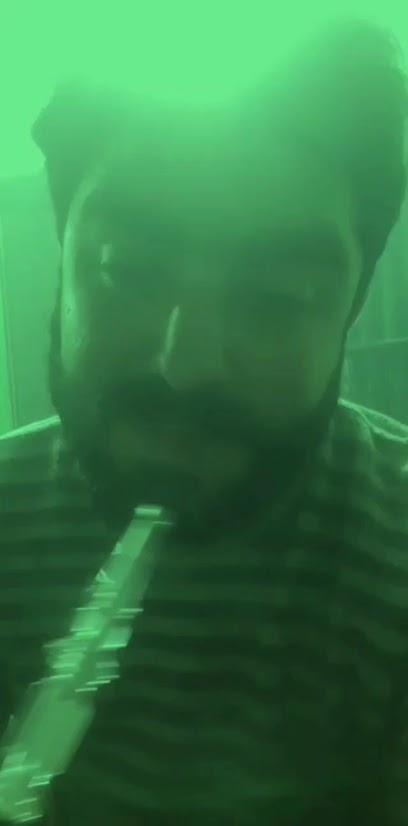
Aziz Mamu
Experience the lively atmosphere and local flavors at Aziz Mamu, a top bar destination in Peshawar’s Hayatabad area.
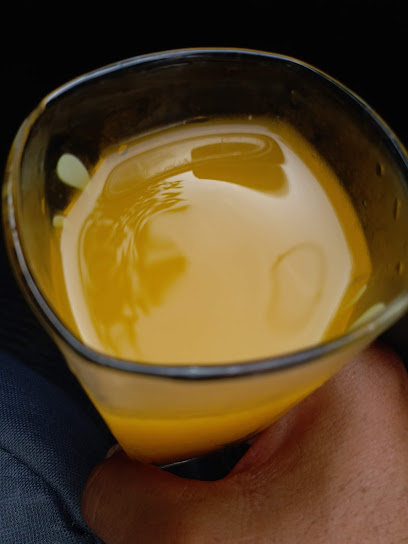
بلال سٹاپ بڈھ بیر
Discover the vibrant local culture at Bilal Stop Budh Ber, a lively bar in Peshawar offering unique drinks and a friendly atmosphere.
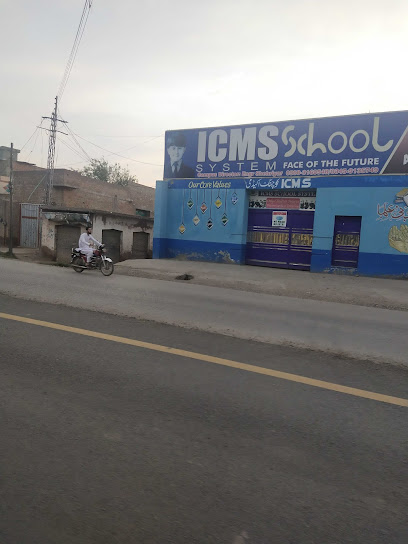
Juice Point
Discover the vibrant flavors of Peshawar at Juice Point, a must-visit bar offering refreshing juices and a cozy atmosphere for all travelers.
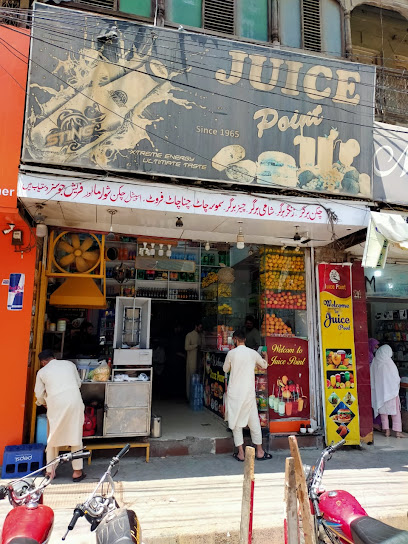
Friends Snooker Club فرینڈز سونوکر کلب
Experience the thrill of snooker in Peshawar at Friends Snooker Club, where locals and tourists gather for fun and games.
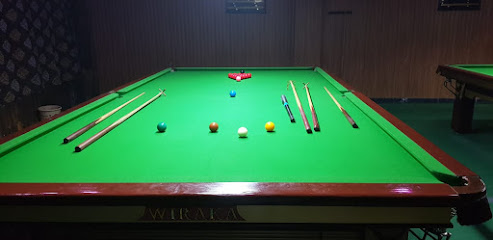
Lalazar
Discover Lalazar, a vibrant bar in Peshawar offering a lively atmosphere, diverse drinks, and a taste of local culture in Khyber Pakhtunkhwa.
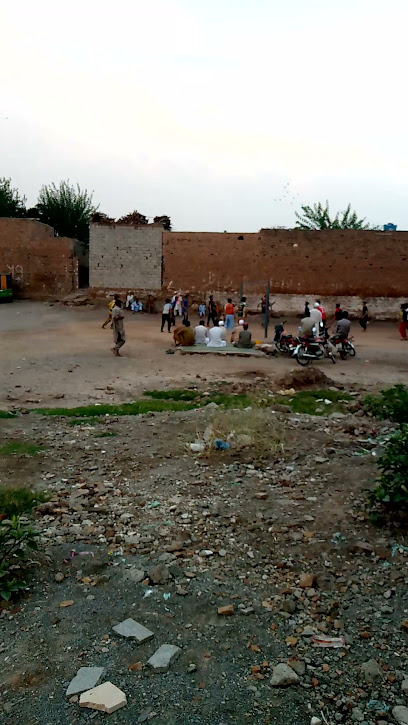
Rawal
Experience the vibrant nightlife of Peshawar at Rawal, a premier bar in Karkhano Market, offering a diverse drink selection and inviting ambiance.

DeCafe
Discover the vibrant atmosphere of DeCafe, Peshawar's cozy bar offering a delightful selection of drinks and local culture.

Kehva Peshawar
Discover the vibrant nightlife at Kehva Peshawar, where local culture meets modern bar ambiance in the heart of Karkhano Market.

قاسم اباد (اتحادامن کمیٹی)
Discover the lively ambiance of قاسم اباد (اتحادامن کمیٹی) in Peshawar, where local culture meets vibrant nightlife.
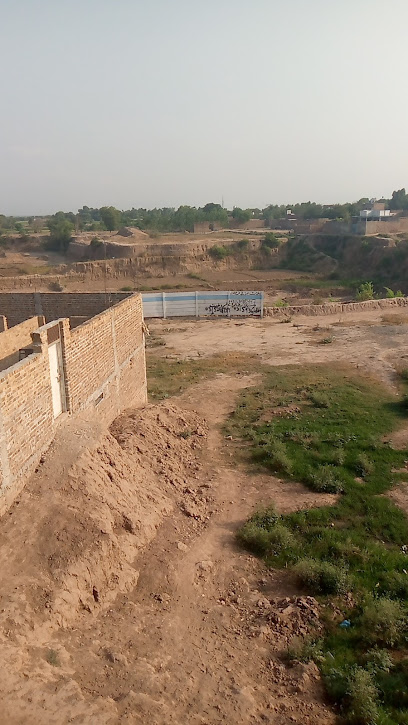
Tea Bar
Discover the enchanting Tea Bar in Peshawar, where every sip of tea tells a story amidst a warm and inviting atmosphere.
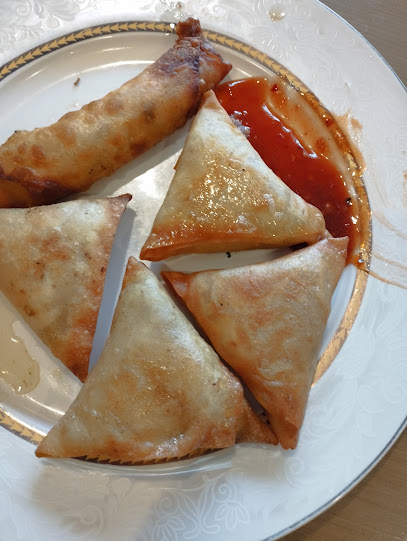
Mfz
Experience the lively atmosphere and unique drink offerings at Mfz, Peshawar's premier bar for locals and tourists alike.

FIT AND FRESH
Discover the lively ambiance of FIT AND FRESH, a top bar in Peshawar offering refreshing drinks and a vibrant atmosphere for all visitors.

Local Phrases
-
- Helloسلام
[Salaam] - Goodbyeخدا حافظ
[Khuda Hafiz] - Yesہاں
[Haan] - Noنہیں
[Nahi] - Please/You're welcomeبراہ کرم
[Barah-e-karam] - Thank youشکریہ
[Shukriya] - Excuse me/Sorryمعاف کیجیے
[Muaaf kijiyay] - How are you?آپ کیسے ہیں؟
[Aap kaise hain?] - Fine. And you?ٹھیک ہوں۔ آپ؟
[Theek hoon. Aap?] - Do you speak English?کیا آپ انگریزی بولتے ہیں؟
[Kya aap angrezi boltay hain?] - I don't understandمجھے سمجھ نہیں آرہی
[Mujhe samajh nahi arahi]
- Helloسلام
-
- I'd like to see the menu, pleaseبراہ کرم مینو دیکھنا چاہتا ہوں
[Barah-e-karam menu dekhna chahta hoon] - I don't eat meatمیں گوشت نہیں کھاتا
[Mein gosht nahi khaata] - Cheers!خوش رہئیے!
[Khush rahiye!] - I would like to pay, pleaseبراہ کرم ادا کرنا چاہتا ہوں
[Barah-e-karam ada karna chahta hoon]
- I'd like to see the menu, pleaseبراہ کرم مینو دیکھنا چاہتا ہوں
-
- Help!مدد!
[Madad!] - Go away!دور ہو جاؤ!
[Door ho jao!] - Call the Police!پولیس کو بلاؤ!
[Police ko bulao!] - Call a doctor!ڈاکٹر کو بلاؤ!
[Doctor ko bulao!] - I'm lostمیں گم ہو گیا ہوں
[Mein gum ho gaya hoon] - I'm illمیں بیمار ہوں
[Mein bemar hoon]
- Help!مدد!
-
- I'd like to buy...میں خریدنا چاہتا ہوں...
[Mein khareedna chahta hoon...] - I'm just lookingمیں صرف دیکھ رہا ہوں
[Mein sirf dekh raha hoon] - How much is it?یہ کتنا ہے؟
[Yeh kitna hai?] - That's too expensiveیہ بہت مہنگا ہے
[Yeh bohot mehnga hai] - Can you lower the price?کیا آپ قیمت کم کر سکتے ہیں؟
[Kya aap qeemat kam kar sakte hain?]
- I'd like to buy...میں خریدنا چاہتا ہوں...
-
- What time is it?وقت کیا ہوا ہے؟
[Waqt kya hua hai?] - It's one o'clockایک بجے ہیں
[Ek baje hain] - Half past (10)دس بج کر پندرہ منٹ ہیں
[Das baje kar pandra minute hain] - Morningصبح
[Subah] - Afternoonدوپہر
[Dopahar] - Eveningشام
[Shaam] - Yesterdayکل
[Kal] - Todayآج
[Aaj] - Tomorrowکل
[Kal] - 1ایک
[Ek] - 2دو
[Do] - 3تین
[Teen] - 4چار
[Chaar] - 5پانچ
[Paanch] - 6چھے
[Chhe] - 7سات
[Saat] - 8آٹھ
[Aath] - 9نو
[Nau] - 10دس
[Das]
- What time is it?وقت کیا ہوا ہے؟
-
- Where's a/the...?...کہاں ہے؟
[Kahan hai?] - What's the address?پتہ کیا ہے؟
[Pata kya hai?] - Can you show me (on the map)?کیا آپ مجھے دکھا سکتے ہیں (نقشہ پر)؟
[Kya aap mujhe dikhha sakte hain (naqsha par)?] - When's the next (bus)?اگلا (باس) کب ہے؟
[Agla (bus) kab hai?] - A ticket (to ....)ایک ٹکٹ (سے ....)
[Ek ticket (se ....)]
- Where's a/the...?...کہاں ہے؟
History of Peshawar
-
Peshawar's history dates back to at least 539 BCE, making it one of the oldest cities in South Asia. It served as a major center for the Gandhara civilization, which flourished from around the 6th century BCE to the 5th century CE. This period is notable for the unique blend of Greek and Buddhist art, particularly the Gandharan sculptures that are found in museums around the world. The city was also a key stop on the ancient Silk Road, facilitating trade and cultural exchanges between the East and West.
-
In 327 BCE, Peshawar was invaded by Alexander the Great during his campaign to conquer the Persian Empire. Known as 'Purusapura' at the time, the city witnessed significant changes as Alexander's armies passed through. Although his stay in the region was brief, the cultural impacts were long-lasting, adding a Hellenistic touch to the local art and architecture.
-
During the 1st century CE, Peshawar became the capital of the Kushan Empire under the rule of Emperor Kanishka. This period is highly significant in Buddhist history as it saw the spread of Buddhism into Central Asia and China. The city was home to the monumental Kanishka Stupa, a massive structure that stood as a testament to the emperor's devotion to Buddhism. Although the original stupa no longer stands, its legacy remains a critical part of the city's heritage.
-
The arrival of Islam in Peshawar occurred in the 7th century CE, following the invasions by the Muslim armies. The city gradually became an important center for Islamic culture and learning. The Mahabat Khan Mosque, built in 1630 during the Mughal era, stands as a prominent example of Islamic architecture in Peshawar. The mosque, with its intricate frescoes and grand prayer hall, continues to be a key religious site in the city.
-
In the 19th century, Peshawar became a focal point in the 'Great Game' between the British and Russian Empires. The British formally annexed the city in 1849 after the Second Anglo-Sikh War. One of the most significant events of this period was the signing of the Durand Line Agreement in 1893, which established the border between British India and Afghanistan. This line still holds geopolitical significance today, as it separates Pakistan and Afghanistan.
-
Following the partition of British India in 1947, Peshawar became part of the newly formed state of Pakistan. The city has since grown into an important cultural and economic hub in the Khyber Pakhtunkhwa province. Peshawar University, established in 1950, has become a leading institution for higher education in the region. Despite facing challenges such as political instability and security issues, Peshawar continues to be a vibrant city with a rich cultural heritage.
Peshawar Essentials
-
Peshawar is accessible via Bacha Khan International Airport, which serves both domestic and international flights. From major Pakistani cities like Islamabad, Lahore, and Karachi, you can take a direct flight to Peshawar. The city is also well connected by road and rail. Buses and coaches run regularly from Islamabad, which is about 180 kilometers away and a 2-3 hour drive via the M-1 Motorway. Trains from various parts of Pakistan also connect to the Peshawar Railway Station.
-
Within Peshawar, you can use a variety of transportation options including taxis, auto-rickshaws, and ride-hailing services like Uber and Careem. Public buses and minibuses are available but can be crowded and less comfortable. Renting a car is an option but be prepared for busy traffic conditions. For short distances, walking can also be a convenient way to explore the city.
-
The official currency is the Pakistani Rupee (PKR). Credit cards are accepted in many hotels, restaurants, and larger stores, but it's advisable to carry cash for smaller transactions and in local markets. ATMs are widely available, but ensure you have enough cash before heading to more remote areas.
-
Peshawar is generally safe for tourists, but it's advisable to exercise caution. Avoid venturing into less populated areas after dark and be vigilant in crowded places. Areas like Karkhano Market and some parts of the Old City can be hotspots for petty crime targeting tourists. Always keep your belongings secure and stay aware of your surroundings.
-
In case of an emergency, dial 15 for police assistance and 1122 for medical emergencies. Major hospitals like Lady Reading Hospital and Khyber Teaching Hospital offer emergency services. It is highly recommended to have travel insurance that covers medical emergencies. Pharmacies are widely available for minor health issues.
-
Fashion: Do dress modestly, covering your legs and shoulders. Avoid wearing revealing clothing. Religion: Do respect local customs and traditions. Always remove your shoes before entering mosques and other religious sites. Public Transport: Do be respectful and give up your seat to elderly passengers. Don't eat or drink on public transport. Greetings: Do greet people with a handshake; men should wait for women to extend their hand first. Eating & Drinking: Do try local delicacies and accept food offerings graciously. Don't refuse hospitality, as it is considered impolite.
-
To experience Peshawar like a local, visit the bustling Qissa Khwani Bazaar, known as the 'Storytellers Market', for traditional goods and foods. Engage with locals as they are often friendly and willing to share stories about the city's rich history. Don’t miss a visit to the Peshawar Museum, which houses an exceptional collection of Gandharan art. For a unique experience, take a stroll through the historic Sethi Mohallah, a neighborhood filled with beautifully preserved traditional homes.
Trending Landmark in Peshawar
Nearby Cities to Peshawar
-
Things To Do in Islamabad
-
Things To Do in Rawalpindi
-
Things To Do in Abbottabad
-
Things To Do in Swat
-
Things To Do in Murree
-
Things To Do in Chitral
-
Things To Do in Kaghan
-
Things To Do in Naran
-
Things To Do in Kabul
-
Things To Do in Gujranwala
-
Things To Do in Faisalabad
-
Things To Do in Sialkot
-
Things To Do in Gilgit
-
Things To Do in Jammu
-
Things To Do in Lahore















